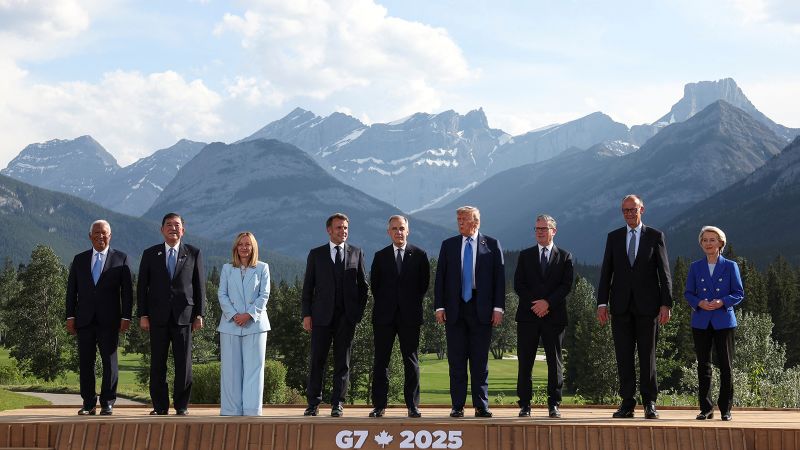On Monday, leaders of the Group of Seven (G7) provisionally reached an agreement on a strategic approach aimed at enhancing the protection of critical mineral supplies while simultaneously bolstering their respective economies. This initiative comes in light of ongoing challenges in the global mineral markets, as indicated by a draft statement that was revealed to Reuters.
The draft, which is yet to receive formal approval from US President Donald Trump, emphasizes the need for mineral markets to accurately reflect the true costs associated with responsible extraction, processing, and trade. This alignment of market prices with genuine economic realities is posited as essential to creating a sustainable framework that can better withstand geopolitical tensions and market fluctuations.
A significant factor influencing this urgency is China’s recent decision to impose restrictions on exports of a vast array of critical minerals and magnets in April. Such actions have had a profound impact, disrupting supply chains that are vital to sectors such as automotive manufacturing, computer chip production, and defense contracting worldwide. The reliance on these materials has rendered many industries vulnerable to external market pressures, particularly those stemming from decisions made in Beijing.
Importantly, President Trump remarked last week that Chinese President Xi Jinping had ostensibly agreed to ensure that the flow of rare earth minerals and magnets to the United States would not be interrupted. Such commitments are seen as crucial, as rare earth elements and other critical minerals continue to be utilized as leverage by China in international trade relations. This dynamic underscores the geopolitical significance of these resources, making the G7’s coordinated response all the more pertinent.
The draft statement unequivocally highlights concerns regarding “non-market policies and practices” prevalent within the critical minerals sector. These practices pose a threatening challenge to the ability of G7 countries to procure essential raw materials. The statement articulates a shared acknowledgment among G7 leaders of this threat to their economies and outlines the need for concerted efforts to bolster the resilience of critical mineral supply chains.
In response to these challenges, the G7 leaders have proposed a collaborative approach that involves working in tandem not only among themselves but also with partners beyond their immediate grouping. The goal of these collective efforts is to mitigate risks to both economic and national security. To this end, strategies include proactive measures to anticipate potential shortages of critical minerals, developing coordinated responses to deliberate disruptions in the market, and diversifying activities across mining, processing, manufacturing, and recycling facets of the supply chain.
In essence, the G7 strategy seeks to create a resilient and reliable supply chain for critical minerals that can withstand the pressures of geopolitical maneuvering. By diversifying sources and methods of extraction, as well as ensuring that the actual costs of responsible practices in the industry are reflected in market prices, the G7 hopes to secure a stable economic landscape for their economies.
As discussions and negotiations evolve, it remains to be seen how effectively the G7 will harness its collective power to address the challenges posed by external pressures on critical mineral supply chains. The geopolitical landscape, influenced heavily by decisions made by major players such as China, underscores the fragility of global dependencies on these vital resources. The upcoming summits and engagements among G7 leaders will likely provide more clarity on the specific actions to be taken and the timeline for implementing these critical strategic initiatives.
Ultimately, the collaborative spirit advocated by G7 leaders aims to ensure that economies not only survive but thrive in an increasingly complex global market where critical minerals play a fundamental role in technological advancement and national security. The path they choose could redefine how nations engage with one another in the pursuit of sustainable and secure access to essential resources in the years to come.



